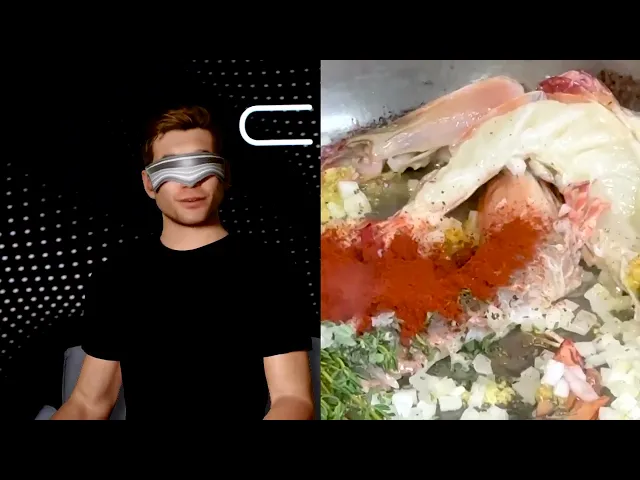Dubai to debut restaurant operated by an AI chef

AI chefs set to revolutionize Dubai restaurants
Dubai's hospitality landscape is on the verge of a technological breakthrough with the imminent arrival of a restaurant operated by an artificial intelligence chef. This bold innovation, spearheaded by AI Cuisine, stands to transform our understanding of culinary automation and restaurant operations. As machines continue their steady march into domains once exclusively human, this development raises fascinating questions about the future of food service and gastronomy.
Key insights from the development
-
The AI-powered restaurant system doesn't merely follow recipes but can adapt and create dishes by analyzing vast datasets of flavor combinations and cooking techniques.
-
Unlike previous food automation attempts, this system manages the entire culinary process from preparation to plating, without human intervention in the cooking workflow.
-
The technology represents a significant leap in addressing labor challenges in the restaurant industry, potentially offering consistency and operational efficiency that human-staffed kitchens struggle to maintain.
-
While promising lower operational costs long-term, the substantial initial investment in this technology positions it initially as a luxury dining concept rather than an immediate solution for budget restaurants.
-
The developers have emphasized maintaining cultural authenticity in the AI's cooking approach, programming it to respect traditional preparation methods while still allowing for culinary innovation.
The most compelling aspect of this development isn't the novelty factor but rather how it addresses persistent restaurant industry pain points. Labor shortages have plagued hospitality businesses globally since the pandemic, with many establishments struggling to maintain consistent staffing levels. An AI chef system promises 24/7 operational capability without sick days, training issues, or high turnover rates that characterize many restaurant kitchens.
This matters particularly in Dubai's competitive hospitality landscape, where excellence is expected and labor costs are significant. The consistency factor cannot be overstated—every dish emerging from the AI kitchen should theoretically maintain identical quality standards, something even the finest human-run restaurants struggle to achieve. For business owners, this reliability translates directly to customer satisfaction and operational predictability.
What the coverage doesn't fully explore is the significant psychological barrier this technology must overcome. Humans have deeply emotional connections to food preparation. From our earliest cultural traditions to modern celebrity chef worship, we've encoded human touch as essential to exceptional dining experiences. For AI Cuisine to succeed beyond novelty, they'll need to address this cultural expectation head-on, perhaps by creating compelling
Recent Videos
How To Earn MONEY With Images (No Bullsh*t)
Smart earnings from your image collection In today's digital economy, passive income streams have become increasingly accessible to creators with various skill sets. A recent YouTube video cuts through the hype to explore legitimate ways photographers, designers, and even casual smartphone users can monetize their image collections. The strategies outlined don't rely on unrealistic promises or complicated schemes—instead, they focus on established marketplaces with proven revenue potential for image creators. Key Points Stock photography platforms like Shutterstock, Adobe Stock, and Getty Images remain viable income sources when you understand their specific requirements and optimize your submissions accordingly. Specialized marketplaces focusing...
Oct 3, 2025New SHAPE SHIFTING AI Robot Is Freaking People Out
Liquid robots will change everything In the quiet labs of Carnegie Mellon University, scientists have created something that feels plucked from science fiction—a magnetic slime robot that can transform between liquid and solid states, slipping through tight spaces before reassembling on the other side. This technology, showcased in a recent YouTube video, represents a significant leap beyond traditional robotics into a realm where machines mimic not just animal movements, but their fundamental physical properties. While the internet might be buzzing with dystopian concerns about "shape-shifting terminators," the reality offers far more promising applications that could revolutionize medicine, rescue operations, and...
Oct 3, 2025How To Do Homeless AI Tiktok Trend (Tiktok Homeless AI Tutorial)
AI homeless trend raises ethical concerns In an era where social media trends evolve faster than we can comprehend them, TikTok's "homeless AI" trend has sparked both creative engagement and serious ethical questions. The trend, which involves using AI to transform ordinary photos into images depicting homelessness, has rapidly gained traction across the platform, with creators eagerly jumping on board to showcase their digital transformations. While the technical process is relatively straightforward, the implications of digitally "becoming homeless" for entertainment deserve careful consideration. The video tutorial provides a step-by-step guide on creating these AI-generated images, explaining how users can transform...
